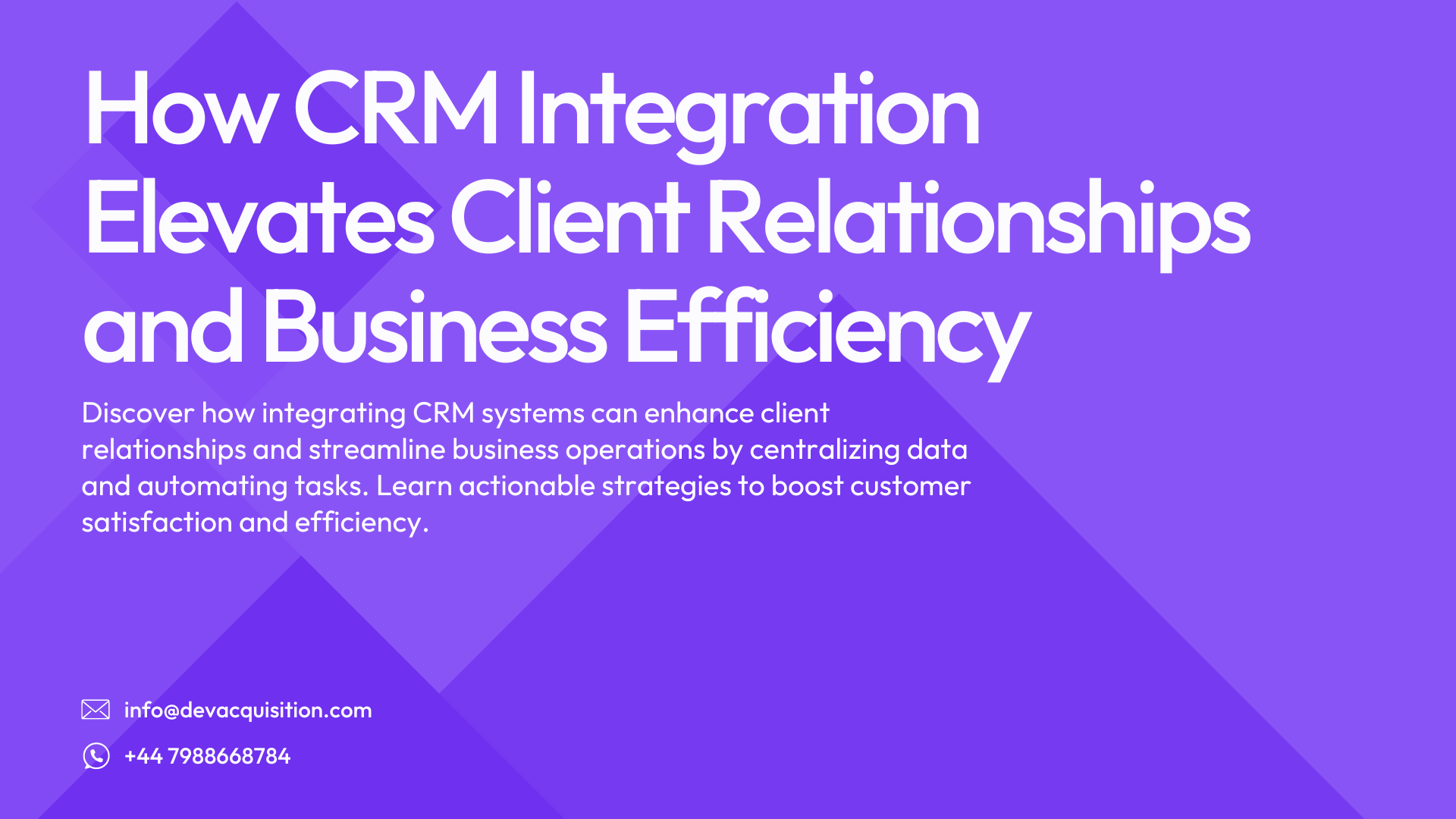Customer Relationship Management (CRM) systems have become the backbone of modern businesses, playing a vital role in client engagement, data management, and workflow automation. The challenge lies in managing vast amounts of customer information effectively, and that’s where CRM integration comes into play. By seamlessly integrating CRM tools with other business software such as email marketing, social media, and analytics tools, companies can achieve new levels of efficiency and improve their relationships with clients.
In this article, we’ll explore how CRM integration can revolutionize your business operations by enhancing efficiency, improving communication, and boosting customer satisfaction.
Centralizing Customer Data for Enhanced Visibility
One of the key benefits of CRM integration is the centralization of customer data. Instead of managing client information across multiple platforms, businesses can have a single source of truth, improving visibility and access to customer records.
Benefits of Centralized Data:
- Efficiency: Employees no longer have to jump between platforms to retrieve data. All customer interactions, preferences, and previous communications are accessible from a single platform.
- Improved Decision-Making: Sales teams can make informed decisions by analyzing a customer’s complete history, enabling personalized outreach that resonates with their needs.
- Enhanced Collaboration: By integrating CRM with other tools, such as project management or support platforms, cross-department collaboration improves. Everyone from marketing to customer service has access to the same information, ensuring consistency in interactions.
Automation of Repetitive Tasks
Automation is one of the most compelling reasons to invest in CRM integration. When combined with marketing automation tools, CRM systems can handle routine tasks like sending follow-up emails, updating customer information, or generating sales reports, freeing up valuable time for teams.
Automation Examples:
- Follow-Ups: Automatically send emails after a lead signs up for a webinar or subscribes to a newsletter.
- Data Entry: Sync contact information between different platforms, eliminating the need for manual data entry.
- Customer Feedback: Schedule automated follow-ups after a product purchase or service inquiry to gather feedback.
Streamlined Communication Across Platforms
Integration between CRM and communication tools like email, WhatsApp, and social media enhances customer interaction. Businesses can keep track of conversations, schedule future engagements, and even personalize their outreach based on the client’s communication history.
Key Benefits:
- Consistency in Communication: Every touchpoint a customer has with your company can be recorded in the CRM, so teams are always informed.
- Improved Customer Satisfaction: Personalization through CRM means you can send relevant offers or communications at the right time.
- Cross-Channel Interaction: Whether a client interacts through email or social media, all data is recorded and accessible in one place.
Data-Driven Insights for Better Decision-Making
Data is the new currency in business, and a CRM that is integrated with your sales, marketing, and customer support platforms gives you access to a wealth of data. These insights can help you identify trends, understand customer behaviors, and fine-tune your strategies.
Examples of Data-Driven Insights:
- Sales Forecasting: Use CRM data to predict sales trends, track the performance of sales reps, and analyze revenue streams.
- Customer Behavior: Understand which products or services a client is most interested in, and tailor your offerings accordingly.
- Marketing Optimization: See which email campaigns or promotions yield the best results and adjust your efforts to focus on what works.
Scaling Client Engagement with CRM Integration
As businesses grow, managing a large client base becomes challenging. CRM integration allows for scalable customer engagement strategies. By using automated workflows and centralized data, businesses can manage more clients without sacrificing the quality of interaction.
How CRM Helps Scale Business:
- Automated Onboarding: New clients can automatically receive welcome emails, educational resources, and reminders, ensuring they are supported from day one.
- Personalized Campaigns: Use CRM data to segment your client base and send personalized campaigns to different groups based on their interests or past interactions.
- Efficient Sales Pipeline Management: As your sales volume increases, CRM automation can keep deals organized and ensure that no opportunities fall through the cracks.
The Future of CRM Integration
CRM integration is not just about simplifying internal processes—it’s about building lasting client relationships. By leveraging data, automating routine tasks, and creating a centralized system for all customer interactions, businesses can ensure they provide high-quality service and personalized communication. As a result, they will see an increase in client satisfaction, operational efficiency, and overall business growth.
With CRM integration, companies can stay ahead of the competition by delivering value at every customer interaction while optimizing internal workflows. Book your free discovery today!






Leave A Comment